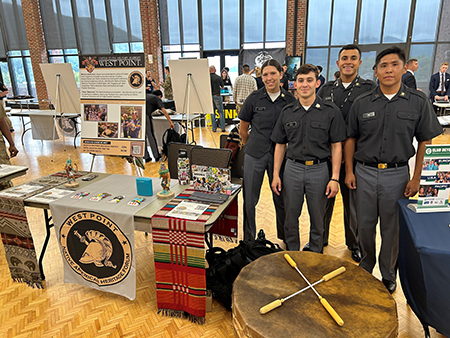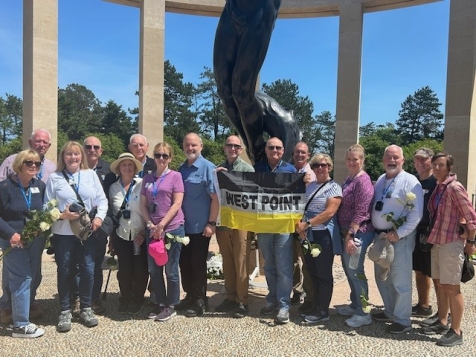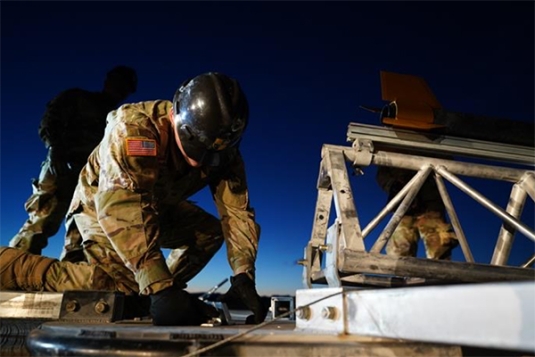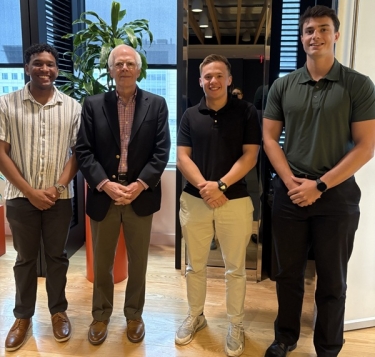Marc E. (Dewey) Boberg ’92 serves as the Simon Center’s USMA Class of 1969 Chair for the Study of Officership and is the OIC for the Native American Heritage Forum.
What is the Native American Heritage Forum?
The Native American Heritage Forum (Club), supports and celebrates the culture of cadets from indigenous heritage across the Americas including Alaska Natives and Pacific Islanders. We share and celebrate our diverse indigenous cultures, seek opportunities to learn more through visiting the Smithsonian National Museum of the American Indian both in New York City and Washington D.C., attend at least one PowWow annually, engage with the other Academies’ Native American Clubs, and host an Eagle Feather Ceremony during graduation week for those who are graduating and commissioning each year. Every month, we meet to share more about our native cultures and learn to play our PowWow drum. Currently, we are seeking to identify USMA graduates (Old Grads) of Native American Heritage so we can connect with them as well, invite them too our ceremony, and learn from their experiences as officers in the United States Army.
What value does this Margin of Excellence Club bring to cadets?
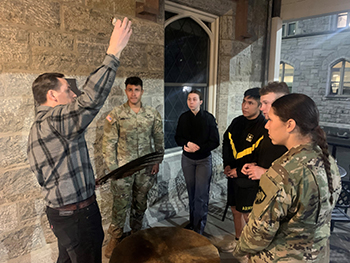
Clubs are incredibly important for a couple of reasons. Firstly, they provide a way for cadets from diverse backgrounds to find and engage with other cadets from similar backgrounds. Native Americans or American Indians serve in the Armed Forces at five times the national average. For a community that has persevered through decades of challenges, including in many cases confronting the U.S. government, they have remained incredibly steadfast in their defense of the United States. While they have an oftentimes complicated, but long history of serving in the U.S. military, it is a proud history of service. Cadets from these backgrounds can use the support of other cadets of similar experiences as they adapt to the U.S. Army and USMA culture, continue their development, oftentimes very far from home, and prepare for service as commissioned officers of character in the United States Army. The second value of the club is to learn and share the unique indigenous cultures of the American Indian tribes with other cadets and the greater community. The Native Americans are warriors—we can celebrate their culture and warrior spirit by sharing tribal traditions, learning to effectively play our PowWow drum, share our culture and honor our graduates of Native American heritage during our Eagle Feather Ceremony overseen by tribal elders as cadets transition to becoming commissioned officers of character.
What got you interested in becoming the OIC of the Native American Heritage Forum?
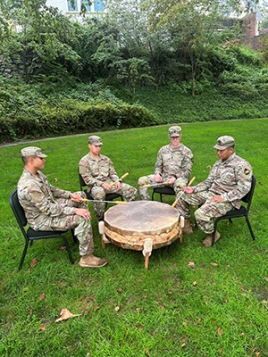
I am a West Point Old Grad myself, starting my cadet experience on July 1, 1986 with the class of 1990. I later served a mission for my church to Chile and eventually graduated with the USMA Class of 1992, commissioning as an Armor Officer. Shortly after graduation, I married the love of my life, Penni, who is a member of the Uintah Ute and Eastern Band of Cherokee Indians tribes. She introduced me to her family and background. I found the genealogy fascinating. For example, on her mother’s Ute side of the family, she is a great-granddaughter of Chief Wakara, who was the leader of the Utes in present day Utah when the pioneers started to settle that area—and it wasn’t always friendly. While my family is primarily of European decent, my father’s family moved to Arizona when he was very young during World War II and I have learned a great deal about the tribes of the southwest. Having said all that, several years back while I was still on active duty, my family moved to West Point in 2008 and I taught in the Department of Foreign Languages for a few years. My wife encouraged me to get involved with the Native American Heritage Forum to support cadets. When we returned here to teach in 2019, this time as an Army retiree, I again reached out to the Native American Heritage Forum to volunteer to engage with cadets and support them in their development as future Army Officers. In simple terms, I serve as the Club OIC ideally to celebrate and support cadet development while also learning and sharing my own wife (and kids) American Indian heritage.
What’s a unique event the Native American Heritage Forum participates in?
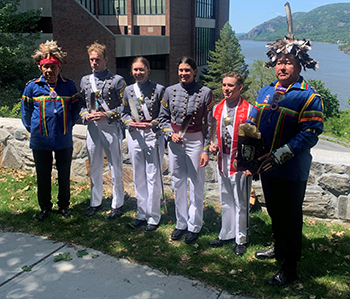
The culminating event for our club is our annual Eagle Feather ceremony during grad week each spring. The Native American Forum, usually on the Friday before graduation, hosts the Eagle Feather ceremony to honor the accomplishments of our indigenous cadets and mark their transition to becoming commissioned officers of character, as well as fully fledged warriors from their tribes. The theme is one of respect, honor, courage, and wisdom meant to build cultural ties while recognizing honorable service. We invite tribal elders to lead the ceremony to honor the graduates in front of their families and the community. Attendees deepen their sense of connection with their indigenous cultures and shared experience. It is really an opportunity to mark graduate’s transition into the Army’s warrior force while honoring the traditions and rites of tribal cultures. ★
In honor of National American Indian Heritage Month, the West Point Band collaborated with CDT Trenton Tom ’24. Tom shares selections from of Diné Bahaneʼ, the Navajo creation story, set to music by Navajo composer Connor Chee. Watch here.
The United States Military Academy observance of National American Indian Heritage Month was held on November 14. Read here.
Margin of Excellence
Opportunities like these are made possible by the Margin of Excellence. There are 120 cadet clubs at West Point including athletic, recreational, academic, religious, and hobby clubs—something for virtually every interest, made possible by donors supporting the Margin Of Excellence.
Federal dollars fund the requirements to earn a Bachelor of Science degree and a commission in the United States Army such as tuition, room and board, an accredited academic program, military and physical training, moral-ethical training, and basic facilities in which to conduct these programs.
The West Point Association of Graduates must seek private funding for additional developmental programs that go beyond the core elements to create the Margin of Excellence. These programs allow the Academy to remain competitive in attracting high-quality cadet candidates and enable cadets to achieve their highest potential.

